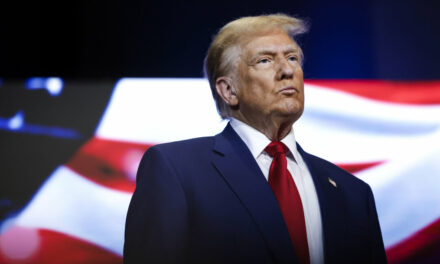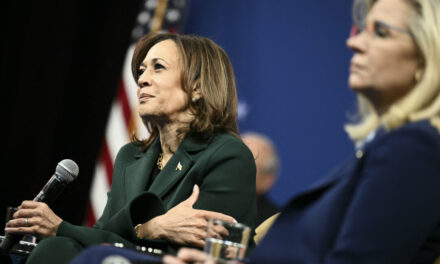We support our Publishers and Content Creators. You can view this story on their website by CLICKING HERE.
United Nations members called a meeting after North Korea fired a test launch of a intercontinental nuclear-capable missile last week.
The United States accused China and Russia of shielding North Korea from criticism during a United Nations Security Council meeting called Nov. 4 to address Pyongyang’s test launch of a nuclear-capable long-range missile last week.
“Russia and China have shamelessly protected Pyongyang from any reprisal, or even condemnation of its actions,” said deputy U.S. Ambassador to the U.N. Robert Wood, accusing the U.N. members of effectively emboldening the totalitarian state’s nuclear ambitions.
“Shielded from closer scrutiny of its sanctions-violating activities by Moscow and Beijing, Pyongyang, unsurprisingly, has been emboldened to continue advancing its unlawful ballistic missile, nuclear, and WMD [weapons of mass destruction] programs,” Wood said.
“While U.S. INDOPACOM has assessed it did not pose an immediate threat to U.S. personnel, or territory, or to our allies, this launch needlessly raises tensions and risks destabilizing the security situation in the region,” he said.
The officials said the deepening Russia-North Korea partnership was a concern, and Russia appeared to be training North Korean soldiers in artillery, drone use, and frontline-use infantry operations, destabilizing the Korean peninsula.
Both China and Russia are members of the United Nations and sit as permanent members of the U.N. Security Council alongside the United States, United Kingdom, and France, tasked with the responsibility for maintaining peace.
Russian and Chinese ambassadors at the United Nations blamed the United States and international sanctions for creating tensions with North Korea—which is continuing to violate the basic human rights of its own citizens.
Deputy Russian U.N. Ambassador Anna Evstigneeva accused the countries that called Monday’s meeting—the United States, France, Japan, Malta, South Korea, Slovenia, and Britain—of “demonizing” North Korea to keep “afloat ineffective sanctions measures” and justify “aggressive steps” by the United States and its democratic allies in the region.
China’s U.N. Ambassador Fu Cong similarly said the council’s role was to de-escalate “rather than simply imposing sanctions and pressure.”
North Korea’s U.N. Ambassador Kim Song blamed the United States and said “the potential situation is approaching the brink of war.”
Sanctions and Weapons of Mass Destruction
South Korea’s U.N. Ambassador Joonkook Hwang said Russia and China have prevented the council’s North Korea sanctions committee from updating a list of prohibited items that is aimed at curbing North Korea’s weapons of mass destruction program.
“This launch once again raises a fundamental question: How can an impoverished pariah regime continue to develop such diverse ballistic missile programs despite the rigorous Security Council sanctions regime?” he said.
“The answer is that there must be large loopholes enabling the DPRK’s access to the equipment, materials, and technology necessary to advance its WMD programs,” Hwang said.
U.N. officials condemned the ICBM test.
U.N. Secretary-General António Guterres urged the member states to increase diplomatic engagement, saying it remained the “only pathway to sustainable peace and the complete and verifiable denuclearization of the Korean Peninsula.”
Reuters contributed to this report.

 Conservative
Conservative  Search
Search Trending
Trending Current News
Current News 







